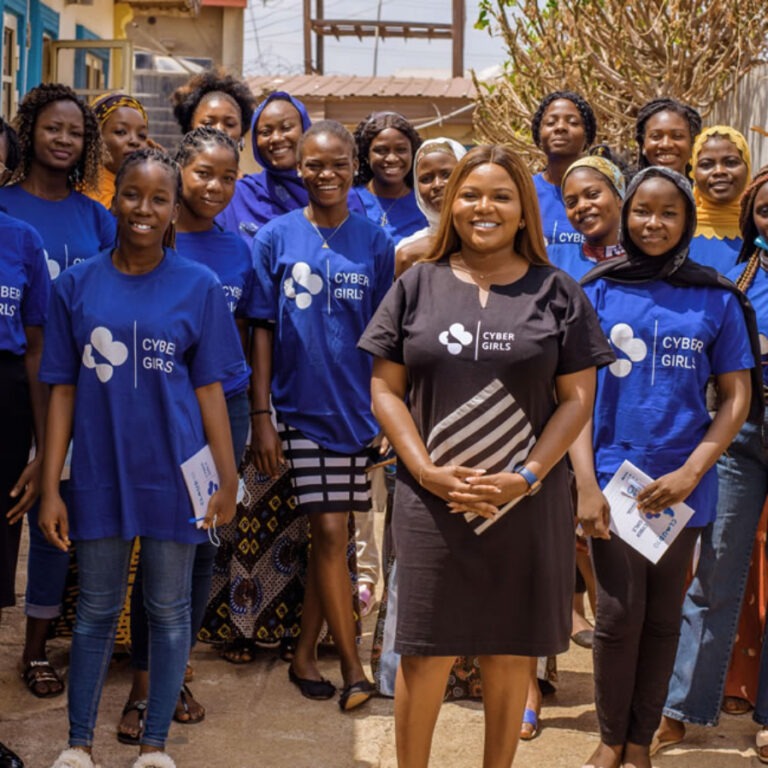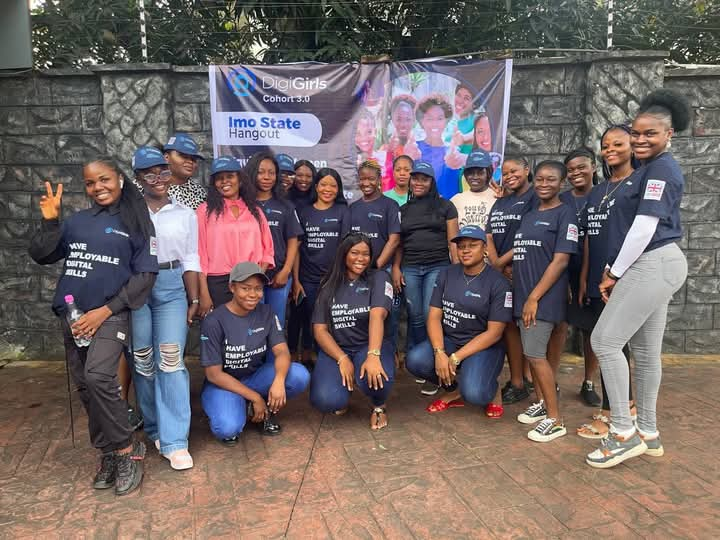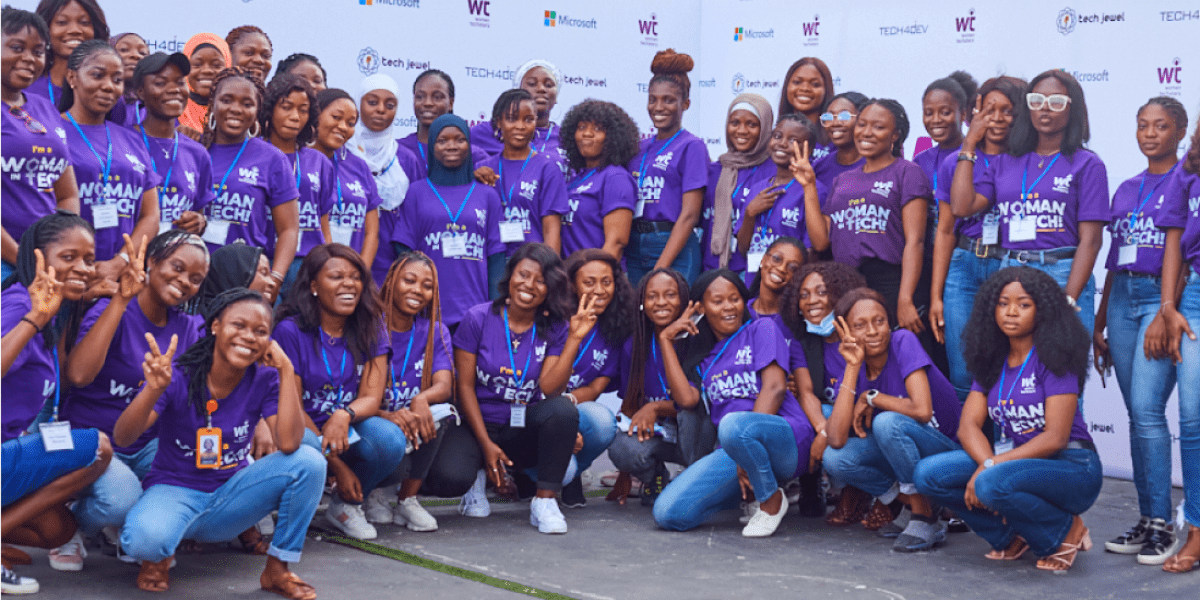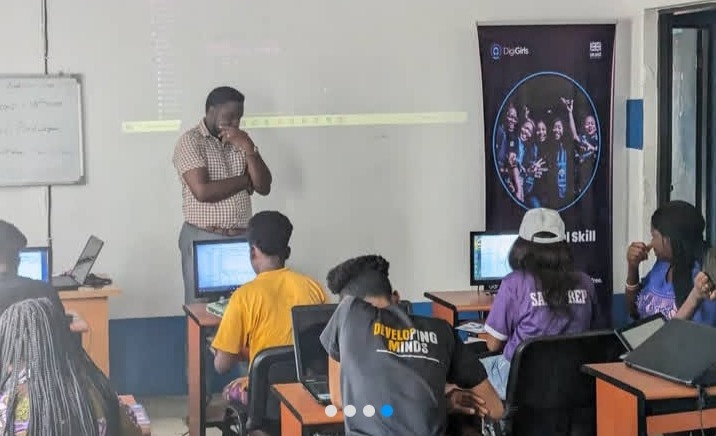- Technology is constantly pushing the boundaries of what’s possible. It improves efficiency, increases productivity, aids faster decision-making, and increases innovation across several aspects, including journalism, Education, Healthcare, and agriculture. Farmers can survey land quickly and identify crop diseases with the help of drones and satellite technology. Teachers can now create more personalized learning and even engage in distance learning to create a more inclusive learning environment. Healthcare workers can now protect sensitive patients’ data from cyber breaches and attackers, use health wearables, sensors, and trackers that patients only need to attach to their bodies to collect health and fitness data, and also communicate effectively with their patients.
However, the technology industry is considered to be male-dominated. Recent statistics show that women comprise only about 25% of the tech workforce with black women accounting for just 0.7% of tech specialists. While discussing the participation of women and girls in digital technology, the Chair of the UN Working Group of Business and Human Rights, Dorothy Estrada Tancke, listed limited access to education, professional training, and economic opportunities as part of the factors fueling the gender gap in the tech industry.
‘I am interested in learning a tech skill. In fact, I have done several online courses on cybersecurity, but I believe I need more practical skills to be a professional. Self-learning might not provide me with the right internship and community.” Kabirat Motunrayo, a recent graduate of the Federal University of Agriculture, said.
There are several women open to learning a tech skill like Kabirat but couldn’t because of financial constraints. Including these women in tech will create a more beneficial product for a significantly wider audience which will create higher revenue and growth for the global economy.
Gender diversity will also reduce gender bias that is currently prevalent in the tech industry, which is male-dominated while contributing to one of the major challenges faced in tech, which is the lack of female role models.
Bridging the Gender Gap in the Tech Industry
Given the gender-related concerns in the tech industry, several organizations have taken the bull by the horns by supporting women in technology to ensure the United Nations Sustainable Development Goal 5, which is to achieve gender equality and empower all women and girls, is achieved.
They are fostering education and career opportunities for women in tech through scholarships, workshops, specialized training programs, and fellowships for women and girls interested in tech, which has contributed to broader global efforts toward equality and empowerment.

Photo Credit- Cybersafe Foundation
Cybersafe Foundation, a non-governmental organization founded by Confidence Starveley, aims to bridge the gender disparity in cyber security and improve the economic well-being of girls and women living in underserved communities through a free 1-year Cybergirl fellowship, a fellowship which has been named Africa’s biggest female-focused Cybersecurity training. It provides females between the ages of 18 and 28 with free and accessible hands-on cybersecurity training, mentorship, and internship/job shadowing opportunities that can potentially lift them out of poverty.
Cybergirl initiative has trained over 900 fellows across 22 African countries with about 35% of the alumni gainfully employed.
One of the Alumni Olufela Osideko, the overall best-graduating student of the first cohort of the Cyber Girl fellowship said, “I didn’t see any of these coming, if anyone told me that I would be in the tech space a few years back, I will deny because either always thought tech is for people with super hyper brain.”
Olufela, who has no degree or any prior knowledge of how to use a computer, has now grown from a Junior Penetration Tester to a Cybersecurity Consultant. Her success story is one of the pools of Cybergirl fellowship beneficiaries bridging the 9% gap of women in cyber security across Africa.

Photo Credit- Immaculeta Onyinyechi
DigiGirls is also an initiative of Cybersafe Foundation by the UK government through its foreign, Commonwealth, and Development office to empower women with in-demand basic digital skills necessary to thrive in this digital economy
This program particularly targets adult females living in underserved communities in Nigeria needing reskilling and job hunting, out-of-school female youths, girls and women in underserved communities, and girls, and women with an interest in gaining digital skills for entrepreneurship which have different learning paths ranging from graphic design to Digital marketing to Data Analysis, E-Commerce and UI/UX design has transformed the lives of several African girls
Bello Bisola, a Nigerian-based product promote,r and educator who benefitted from the Digigirls fellowship said to the Centre for Storytelling for Development, “I was part of the second cohort of the Digigirls and since I have graduated the knowledge still follows me everywhere I go, despite that my learning part was digital marketing, we were also equipped with the soft skill which includes using of Microsoft office tools and even cyber security awareness, I have done several other courses after the Digigirls but it happens to be a revision of what I have already been taught during the training, I am not just equipped with a skill but a marketable one.”
Through the Cybergirl fellowship and Digigirls training, Cybersafe Foundation has reached over 6500 girls and women across Africa.

Photo Credit- Women Techster Initiative
Tech4dev is another organization that is working towards bridging the gender gap in tech through the Women Techster Initiative which is Africa’s largest women-in-tech tuition-free program. The organization provides opportunities to ensure equal access to better opportunities for women and girls in the tech space.
The Women Techster program includes Tech Girl Advocacy, which is to create awareness and encourage young girls to take up careers, and Open Day, a monthly virtual program organized for women across Africa to learn about leveraging the power of technology to start and advance their careers.
The initiative also includes the Women Techsters Bootcamp, which is a 3-week monthly training that introduces women and girls to intermediate-level technology skills along 5 learning paths to help them understand the basics of the path they chose. It serves as a guide for boosters to determine the pathetic to thread on in tech
There is also a 1-year virtual learning program named the Women Techster Fellowship delivered which is to equip women with skills to build tech careers and tech-enabled businesses.
In addition to this is The Women Techsters Masterclasses which are a series of 1–2-day specialized training programs facilitated by skilled professionals in the technology industry and tailored towards equipping women with specific focal technology skills knowledge drawn from the Women Techsters learning tracks. It is an immersive online experience that allows women to learn directly from experts.
The Women Techster Initiative has reached over 4000 girls and women across Africa through its programs.
Adetola Adepegba, a Data Analyst and graduate of Olabisi Onabanjo University while narrating her experience being a beneficiary of the Women Techster Fellowship and Bootcamp said: “The Women Techster Fellowship and Bootcamp gave me more insight on Data analysis which is a path I have interest in, I also gained valuable connection through the community provided by the platform before the training I had self-doubt but I can now do several things I couldn’t before the training and this won’t be possible without the guidance of amazing instructors provided.”
What is weighing down the impact of these organizations?
Despite the involvement of organizations like this to ensure that the gender gap in tech is closed through advocacy and training, there are still several challenges limiting the work of these organizations toward increasing women’s and girls’ participation.
Blessing Ashi of Tech4dev said, “The biggest challenges lie around participation and hesitation. Some women and girls are hesitant to participate in Tech. After all, their cultural background already established that they are not fit for some role because they are girls. A lot of men have complained about several opportunities in tech favoring the feminine gender, but they don’t know that these opportunities increase women’s participation in STEM.”
Confidence Staveley, the team lead of Cybersafe Foundation took to her social media on Friday to announce that the team has taken, the painful decision of pausing this year’s cohort of the Cybergirl fellowship which has grown to be the largest initiative providing free learning opportunities for women across Africa because of lack of enough funding while complaining that the cohort that graduated last December was even underfunded.
This decision further reinstated the research of women tech networks which reveals that obtaining funding for Women-led startups is another greater issue with only 2.3% in 2022 going towards them, beyond the noise also reported, that the volume of funding to startups 2023 all women founders fell to 1% in Nigeria and less than 1% in South Africa in 2023 while posing access to funds as another greater challenge to creating more opportunities for women in tech.
Leveraging Mentorship to Enhance the Women’s Representation in Tech.
While organisations like Cybersafe Foundation and Tech4dev have been working to ensure improvements in the inclusion of women in the tech space by training women and girls, there are still several barriers in the aspect of funding and mentorship.
A girl child and gender inclusion advocate, Barrister Tolulope Adeoti, said that mentorship can create a nation of women in the tech space she said “One of the ways which we need to focus on if funding is not forthcoming is by creating mentorship programs led by female tech workers to support and inspire other women in entering the tech industry. i.e. Peer-to-peer mentorship means pairing female tech newcomers with more experienced female employees to create a relatable, supportive environment and for sharing early-career experiences, guidance on technical skills, and company culture insights, and they can share the same skills with others for a ripple effect.”
If funding could only allow organizations to train several girls, pairing these beneficiaries and female professionals with another set of girls would indeed increase the number of girls in the tech space.









